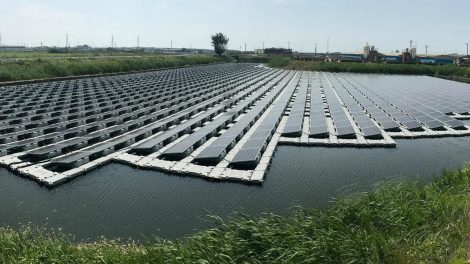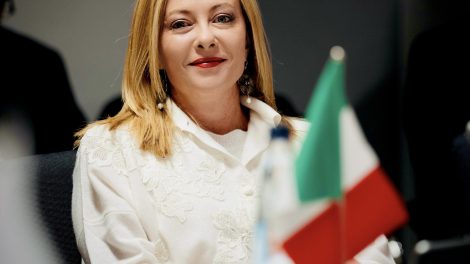Energy equals cooperation. Never as in recent years have energy and climate issues been intertwined with – and reshaped – international relations. Think of Russia’s war of aggression against Ukraine and the European push for diversification, or the race to access the critical raw materials underlying the ecological transition. Against this backdrop, the transatlantic relationship acquires even more importance: convergence between the EU and the US can bend the fortunes of the path towards net zero. But there is no shortage of challenges.
- These were the premises of the latest Formiche.net Live Talk, featuring Landon Derentz, Senior Director of the Atlantic Council’s Global Energy Center, and Marco Margheri, President of the Italian branch of the World Energy Council and member of the Board of Directors of the Washingtonian think tank. Two distinguished guests with an exceptional perspective on energy, the lens through which they analysed the state of the transatlantic relationship, the road to Cop28 in Dubai and the role of the Italian-led G7.
Here’s a selection of condensed takes.
On the Transatlantic energy partnership. The long-standing EU-US energy and climate cooperation extends to multi-decade coordination on energy security, which “underpins broader economic and political stability as well.” Russia’s war on Ukraine brought about “harmonic” convergence across the board, with policies like the US’ Inflation Reduction Act and the EU’s RePowerEU emanating from the highest levels of the respective executives and jointly pushing billions of dollars into a cleaner and more secure energy future (Landon Derentz).
The transatlantic relations platform is proving instrumental in addressing three major challenges. The first is diversification, with the US becoming a strategic supplier for EU countries. The second is the restructuring of critical supply chains, such as that of raw materials, “the critical chokehold for the energy transition,” where partners “are learning to work together,” including with the Global South and China. The third is emerging technology, an EU-US stronghold that’s crucial to reach net zero – as half of emissions reduction will be brought about by as-of-yet non-existing tech (Marco Margheri).
On the road to COP28. In the wake of the COP27 progress on loss and damage, “actionable priorities are the name of the game.” The obvious challenge is in the multilateral process. Politically, all actors must engage and strike the right balance between confrontation and cooperation – or else no net-zero scenario is feasible. That’s also true for the private sector, which must work with realism and cross-sectoral cooperation (Marco Margheri).
“What we can do, in the very acute sense of now, is take and deploy technologies that are known and operational and make them economic […] also for the Global South.” There’s a push to deploy funds and cleantech and finance the transformation. Many collaborative efforts “are anchored in the transatlantic partnership” as they pair governance and funding. Finance is a “huge” element of the conversation: expect “some tangible momentum, and actually funding and bringing resources to bear for the transformation” on both clean energy and methane (Landon Derentz).
On the US-China relation. The outcome of the global transition is contingent on this, as emissions come “disproportionately” from these countries. Conversations in Washington about decoupling and de-risking are taking into account the “multifaceted manufacturing systems” that depend on Beijing’s hold on key materials. It’s about creating momentum on the energy transition while being careful of the energy security implications of a “complicated relationship that also has an adversarial undertone.” Still, there is momentum towards “responsible ties” coupled with de-risking (Landon Derentz).
The US adopting de-risking from the EU hints at the end of the Kissinger paradox (who do I call when I call Europe?). What does de-risking actually mean? One: understanding “there is no energy or digital transition if China’s not on board” in terms of committing to both a better domestic development model and a cohesive contribution to global supply chains. Two: leveraging Transatlantic synergies to reshore some degree of jobs and quality products. Three: jointly using EU-US outreach instruments to offer a Transatlantic route for the Global South’s critical minerals industries, so as to complement and mitigate China’s (Marco Margheri).
On Italy’s G-7 presidency in 2024. There is a “tremendous amount of opportunity” in it, as well as “a lot of compatibility” between Rome’s priorities and the interests of the Transatlantic partnership. Most importantly, acknowledging that energy and climate aren’t “siloed issues” but rather thematic elements of wider G-7 focuses such as migration and food security – conversations “anchored in a space where Italy has a lot of experience.” Thus, beyond Ukraine, expect a new emphasis on the Global South (Landon Derentz).
Italy is well-placed to foster meaningful conversations on at least two major matters: a real response to Ukraine’s needs, including reconstruction (and “a broader security and strategic umbrella” with “strong energy and climate implications”), and challenging the perception of the G-7 as an “ivory tower”, promoting it as “an inclusive motor for change.” As it did in the past by linking G-7 and G-20 themes, Rome’s credibility, coupled with its ongoing efforts on Africa, will aid in delivering a “broader dialogue” with Global South stakeholders and solutions for sustainable development (Marco Margheri).





